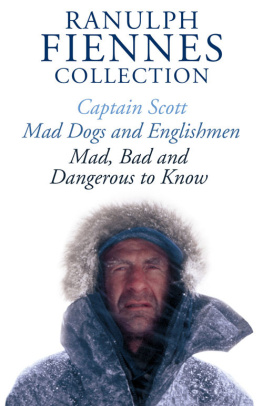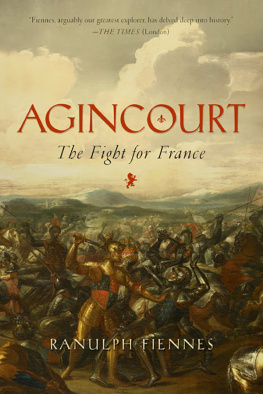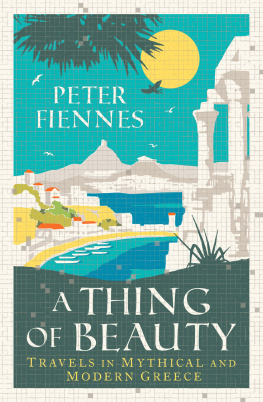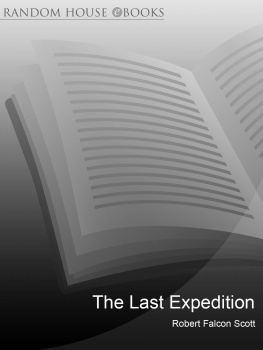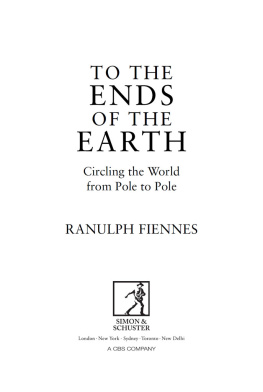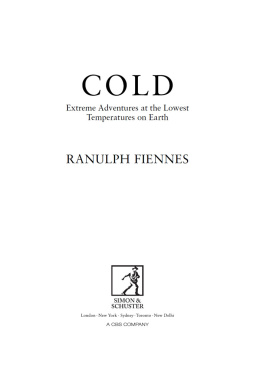The Ranulph Fiennes Collection Captain Scott, Mad, Bad and Dangerous to Know, Mad Dogs and Englishmen
Ranulph Fiennes

www.hodder.co.uk
First published as an ebook collection in Great Britain in 2012 by Hodder & Stoughton
An Hachette UK Company
Copyright Ranulph Fiennes
The right of Ranulph Fiennes to be identified as the Author of the Work has been asserted by him in accordance with the Copyright, Designs and Patents Act 1988.
All rights reserved. No part of this publication may be reproduced, stored in a retrieval system, or transmitted, in any form or by any mean without the prior written permission of the publisher, nor be otherwise circulated in any form of binding or cover other than that in which it is published and without a similar condition being imposed on the subsequent purchaser.
A CIP catalogue record for this title is available from the British Library
ISBN: 978 1 444 77753 6
Hodder and Stoughton Ltd
338 Euston Road
London NWI 3BH
www.hodder.co.uk
Contents

www.hodder.co.uk
First published in Great Britain in 2003 by Hodder and Stoughton
An Hachette UK Company
Copyright 2003 by Ranulph Fiennes
The right of Ranulph Fiennes to be identified as the Author of the Work has been asserted by him in accordance with the Copyright, Designs and Patents Act 1988
All rights reserved.
No part of this publication may be reproduced, stored in a retrieval system, or transmitted, in any form or by any means without the prior written permission of the publisher, nor be otherwise circulated in any form of binding or cover other than that in which it is published and without a similar condition being imposed on the subsequent purchaser.
A CIP catalogue record for this title is available from the British Library
Epub ISBN: 9781444719185
Book ISBN: 9780340826997
Hodder and Stoughton Ltd
An Hachette UK company
338 Euston Road
London NWI 3BH
www.hodder.co.uk
Contents
To the families of the defamed dead
Maps
Authors Note
The explorers used imperial not metric so these have not been converted. To provide the metric equivalent to each and every mile would break up the story. So, if you wish to convert, use the table below. On the other hand, the majority of people these days understand temperatures in Celsius so Fahrenheit is not used.
However, this policy does not apply to original quotes which are not tampered with.
Except if mentioned as statute miles in the original quotes, all mileages are given in nautical (geographical) miles.
1 statute mile (1,760 yards) = 0.87 nautical mile (1.6 km)
1 nautical mile (2,026 yards) = 1.15 statute miles (1.185 km)
1 nautical mile = 1/60th of a degree of latitude
1 knot = 1 nautical mile per hour
Weight bearing on the snow:
Ski = lb per sq inch
Foot = 2 lb psi
Dogs paw = 3 lb psi
Horses hoof = 15 lb psi
To convert F to C, deduct 32, multiply by 5, then divide by 9
Incidentals
1 ounce = 28.35 g
1 gallon = 3.755 l
1 yard = 0.9144 m
1 foot = 0.3048 m
1 inch = 2.54 cm
1 fathom = 6 ft (1.8288 m)
1 in 2003 was worth approximately 47 in 1900
1 ton = 2,240 lbs (1,016 kg)
One pound (1 lb) = 0.453 kg

Introduction
In the short polar summer of 19111912 five Britons and five Norwegians raced each other to the bottom of the world. Only the Norwegians returned. What happened to the British? We should know, since over fifty biographies have since been written about their leader. But there were no witnesses, so a few biographers without experience of the realities have played many tunes, invented many twists to the tragedy and told many lies. In this book I have done what my predecessors could not do; I have put myself in the place of the British explorers and used logic based on personal experience to reconstruct the events. No previous Scott biographer has manhauled a heavy sledgeload through the great crevasse fields of the Beardmore Glacier, explored icefields never seen by man or walked a thousand miles on poisoned feet. To write about Hell, it helps if you have been there.
I do not in any way identify with Scott, nor favour him over his two brave and brilliant contemporaries, the Norwegian Amundsen and the Irishman Shackleton. All three made deadly errors, had grave character flaws and, at some point in their careers, caused other men to die. All that remains by way of evidence as to why the British died are the diaries of the dead and the writings of their surviving friends who described the way things went on journeys under Scott. Some of the writers, for a time, loved or hated Scott and they often made their feelings clear. I have used their words and my experience to give an unbiased account of the way Scott and his men made history.
Markhams Grand Design
Three men were close to death on an ice plain in Antarctica in March 1912. They had all reached the South Pole with Robert Scott but were failing on the return journey. Lawrence Edward Grace Oates, known to his expedition colleagues as Titus, soon to become an archetypal hero of his century, died slowly over many days and nights of intense pain, finally choosing the moment of his end by going outside the tent, where Antarctica killed him in minutes. Oates once said of his leader: he is not straight, it is himself first, the rest nowhere, and when he has got what he can out of you, it is shift for yourself. So Oates shifted for himself.
A few dire days later, two other members of Scotts polar team joined Oates in death. One, Scotsman Henry Bowers, had said of Scott: for ten years, and I believe in him so firmly that I am often sorry when he lays himself open to misunderstanding. I am sure that you will come to know him and believe in him as I do, and none the less because he is sometimes difficult.
Slowly freezing and starving to death beside Bowers and Wilson, Scott also died and a controversial legend was born which, ninety years on, still retains the fascination and power to spark bitter debate and raise hackles. Scott remains an enigma and Wilsons hope that you will come to know him and believe in him has not been realised, despite some four dozen biographies.
Through two world wars the Scott story was used as an heroic example of how to live and how to face death when fighting for your country. Since the 1980s Britain has looked more askance at her past and, led by a different type of biographer, the modern cynical version of the popular Scott story has become one of failure: a failure caused by typical British imperialist qualities at a time when the empire was beginning to wane. A modern biographer, who paints a portrait of any early twentieth-century individual using the critical yardstick of todays moral and social standards, will produce a mere cartoon of the original personality and I know the present day Scott story to be a travesty of the truth.

